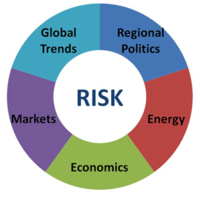Companies urged to see the light on energy
 Companies of all shapes
Companies of all shapesand sizes need to think urgently about securing green energy
supplies, Lloyd’s Chief Executive Richard Ward told business
leaders.
Dr Ward cited the unfolding environmental disaster in the Gulf of
Mexico as just one example of the potential consequences of the
ongoing reliance on fossil fuels. The deeper companies drill for
oil the greater the risks, the more chance that supply will be
disrupted, and the harder the clean up should anything go wrong, he
said.
Speaking at the launch of a joint report from Lloyd’s and
Chatham House, entitled Sustainable Energy Security: Strategic
Risks and Opportunities for Business, Dr Ward said businesses
must prepare themselves for those risks and stop treating a low
carbon economy as a ‘nice to have’. Instead, it has to be an
essential part of securing a future energy supply.
“Prevention is better than cure.
It makes business sense for industry to be thinking not just about
the risks associated with fossil fuels, but also about how they
will manage the transition to a low carbon economy. This is long
overdue,” he said. “Our report is
not just required reading for the Shells or Exxons of this world,
but for all types of business - from supermarkets to financial
services. Everyone needs power to operate and make a profit.
Everyone has a vested interest in protecting that power supply
against future risk and disruption.”
Dr Ward also called on governments to set a clearer framework
for a low carbon economy, to encourage investment. He said:
“Businesses need security that regulations, once fixed, won’t be
subject to arbitrary change. Otherwise, they simply won’t make big
investments. And the energy sector needs an awful lot of investment
just now.”
Regulatory framework
Also speaking at the launch of the report, Charles Hendry, UK
Minister for Energy and Climate Change, said the Government’s role
would be to set the regulatory framework but that it was the
responsibility of the private sector to deliver the best renewable
energy solutions.
“The lesson is that risk management
needs to be holistic or we will just lurch from one crisis to
another.” Charles Hendry, UK Minister for Energy and
Climate Change
“If we get the technology and the regulation right around new
energy sites, then they become more insurable,” he added.
“Therefore, we are keen to hold conversations with the insurance
industry and businesses on where the response lies. This is an area
where the Government really can work in partnership with
industry.”
Speaking of the insurance industry’s role, Dr Ward added that
Lloyd’s and the market in general helps businesses by paying claims
when things go wrong but also by advising how to manage risks -
thereby reducing the chances of things going wrong in the first
place. He said that Lloyd’s estimates its total bill for the
Deepwater Horizon incident at between $300 million and $600
million.
And he warned that the transition from fossil fuels to new green
energy will bring a new set of risks to be managed: “We probably
don’t know the long-term impact of some of the technologies we are
exploring now, but I know that, in our haste to fix one problem, we
often run head-long into another one.
The full report Sustainable Energy Security: Strategic Risks
and Opportunities for Business is
target=”_blank”>available here
Source: www.lloyds.com

